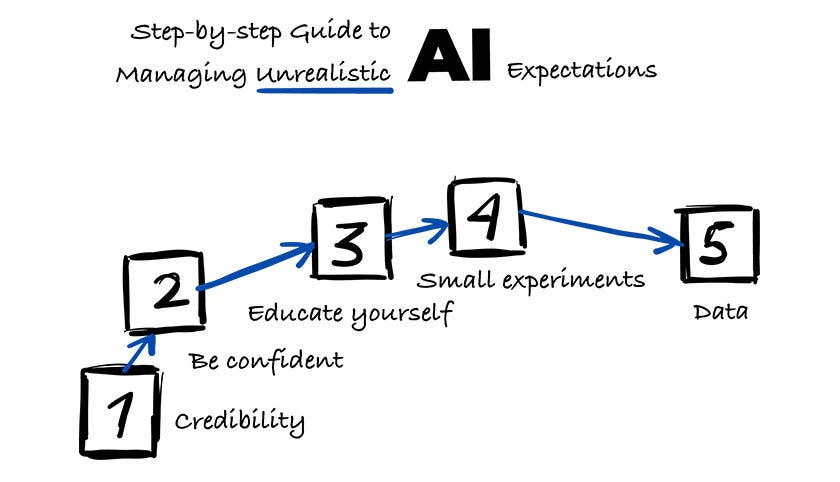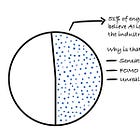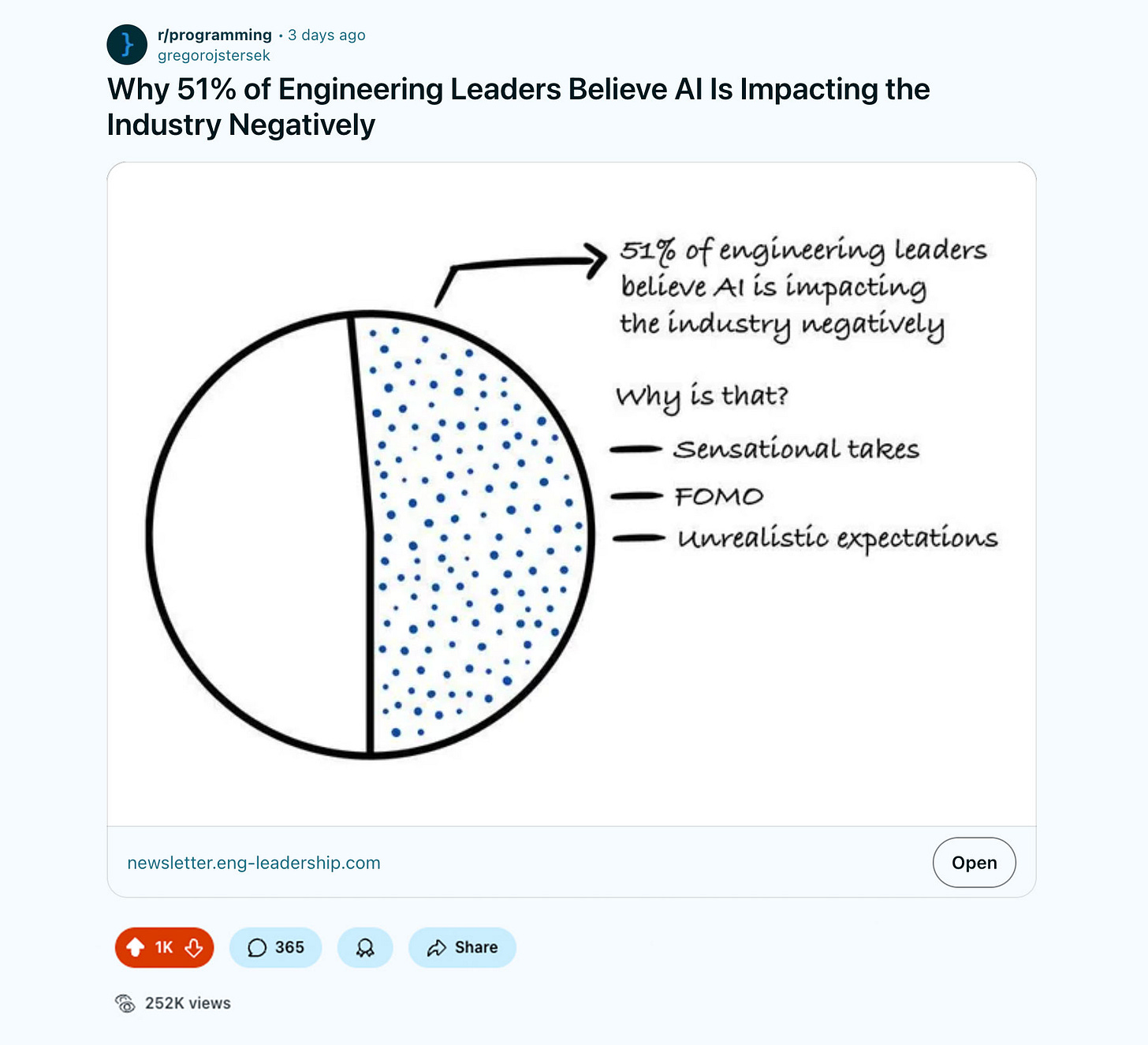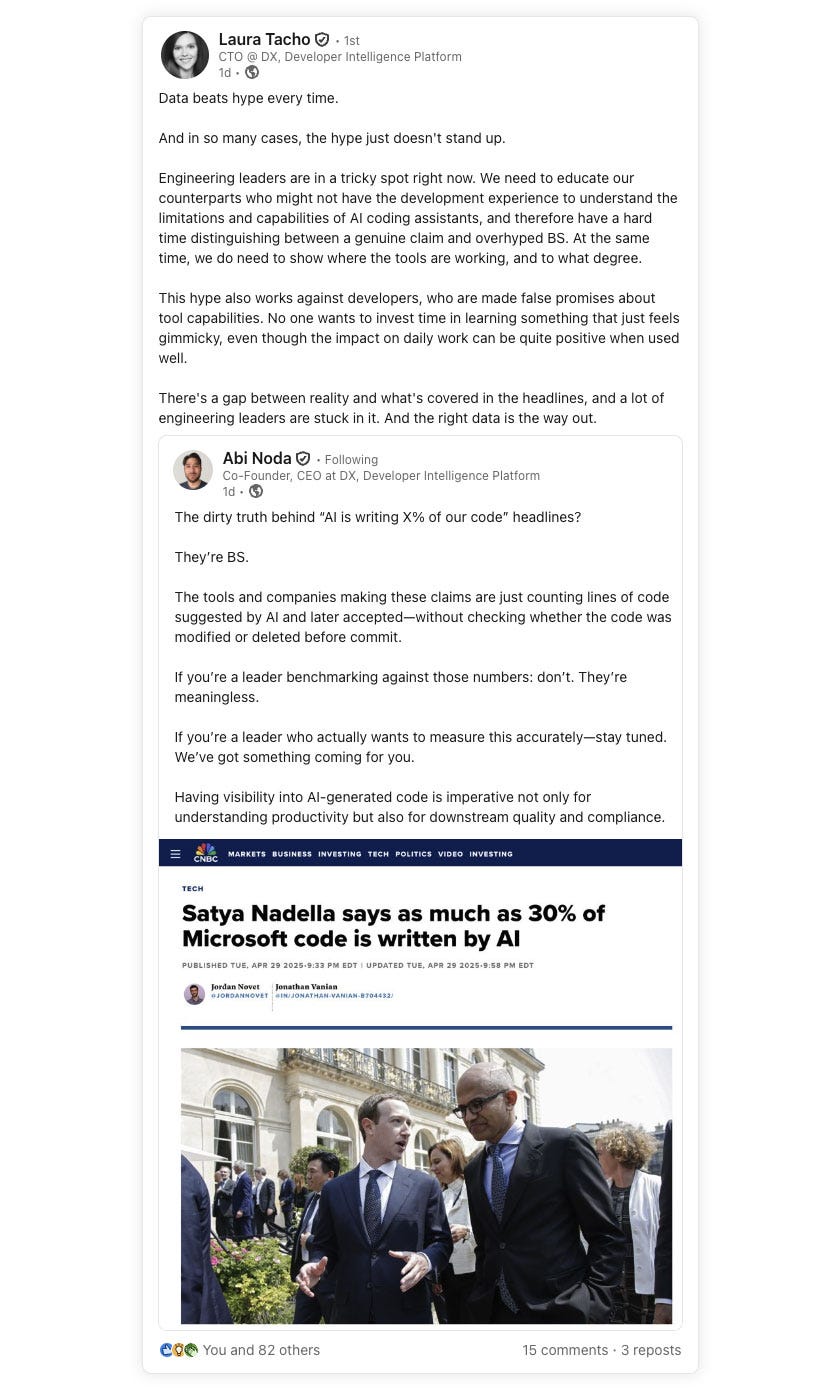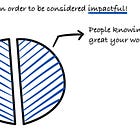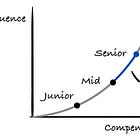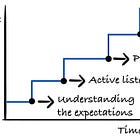Engineering Leader's Guide to Managing Unrealistic AI Expectations
How to manage hype and unrealistic AI expectations as an engineer or manager!
Intro
AI is a great tool for solving problems, but it’s not the best solution for everything.
Unfortunately these days a lot of people, especially less technical ones, believe that AI is a magical tool that can 100x the productivity and create miracles.
This is a recipe for disaster and what we’ve seen from researching the data is that there has been an increase of engineering leaders that feel negatively about the impact of AI and also engineering teams feeling less motivated because of it.
If you haven’t read the article from last week, I highly recommend it, because this is a topic that is not spoken so widely about and I believe a lot of people don’t feel comfortable expressing their thoughts on this topic openly.
I believe a lot of engineers and engineering leaders can resonate with it:
And in today’s article, we are going into more concrete advice on what both engineers and managers should do to manage unrealistic expectations the right way.
Without burning any bridges and also not burning themselves out with unrealistic expectations. It’s a highly relevant topic and a must-read for everyone to thrive or survive in both challenging and exciting times.
This is an article for paid subscribers, and here is the full index:
- A lot of engineers and managers resonate with AI impacting the industry negatively
- The hype and sensational takes from known public individuals are the root cause of this
- So, what can engineers and managers do to manage such unrealistic expectations?
- 1. Build rapport, credibility and trust
🔒 2. Be confident and manage expectations correctly
🔒 3. Make sure to educate yourself on how others are utilizing AI tools
🔒 4. Small experiments are the way to go with AI adoption
🔒 5. Measuring the AI tools’ impact with data
🔒 Last words
A lot of engineers and managers resonate with AI impacting the industry negatively
And the funny thing is that it’s not because of AI alone → the tech is great and it’s also fun to use, it makes everyone (to a certain extent) better.
But there’s a deeper reason for it. What most engineers and engineering leaders dread is when there is an enforcement factor, especially coming from non-technical people that doesn’t get it.
When there are unreasonable expectations like: “It’s only going to take 5 minutes to do this because we can use AI” → engineers and managers can feel forced to take shortcuts to meet such expectations.
This is what is making everyone miserable and less motivated to show up and do their best work.
The recent article went viral on Reddit and I went over the comments and thoughts from people and saw that it resonated with a lot of them.
The hype and sensational takes from known public individuals are the root cause of this
I’ve noticed this trend recently and it’s great to see others speak up about it as well!
Both Laura Tacho and Abi Noda are people that I think highly of when it comes to measuring developer productivity.
Such sensational takes like you can see above “As much as 30% of Microsoft code is written by AI” are aimed to sell their AI products and are the root cause of such issues in the engineering industry.
So, what can engineers and managers do to manage such unrealistic expectations?
When there are such sensational takes being said from known individuals, this then automatically trickles down to company leaders.
The most common unrealistic expectations I have heard of are:
Believing AI is a “Plug and Play” solution
Expecting AI to eliminate all manual work
Underestimating the cost and complexity of building internal LLMs
Assuming AI will just magically understand the whole context of the specific domain
Expecting AI to replace entire teams
Assuming AI will just work without failures
Thinking that there are no ethical, legal and security risks
Assuming AI will exponentially increase the performance over time
So what to do to effectively manage such expectations as an engineer or manager?
Let’s start with the first thing you should do.
1. Build rapport, credibility and trust
This is the first thing you should focus on and the reason is that without great credibility and trust, people will unfortunately be less likely to listen and your inputs are going to be ignored.
You may have heard the quote:
It’s not only important WHAT you say, but also WHO says it is very important as well.
This is crucial especially when dealing with business people and they might have heard from someone that this specific AI tool is 100x-ing the productivity.
They will be hyped about it and you need good counterarguments against it and good credibility is crucial for that.
You definitely shouldn’t be going straight to “Yes, let’s do it”. You need to push back and they will be much more likely to listen when you have good credibility.
So, make sure to focus on both internal and external credibility and building trust. You need to have the right set of skills and also everyone inside the company and preferably also outside of the company should perceive you in a good way.
These 5 articles will help you with that:
Once you have a good amount of credibility and trust, you will much easier manage expectations and also you’ll much easier get the buy-in on specific initiatives.
It’s certainly been the case for me → when I started writing online and became a lot more active within the engineering community, people automatically started listening more and trusting my decisions.
I like to call it a “cheat code” because it makes everything easier for you. The better credibility and trust → less “managing expectations” you need to do.


